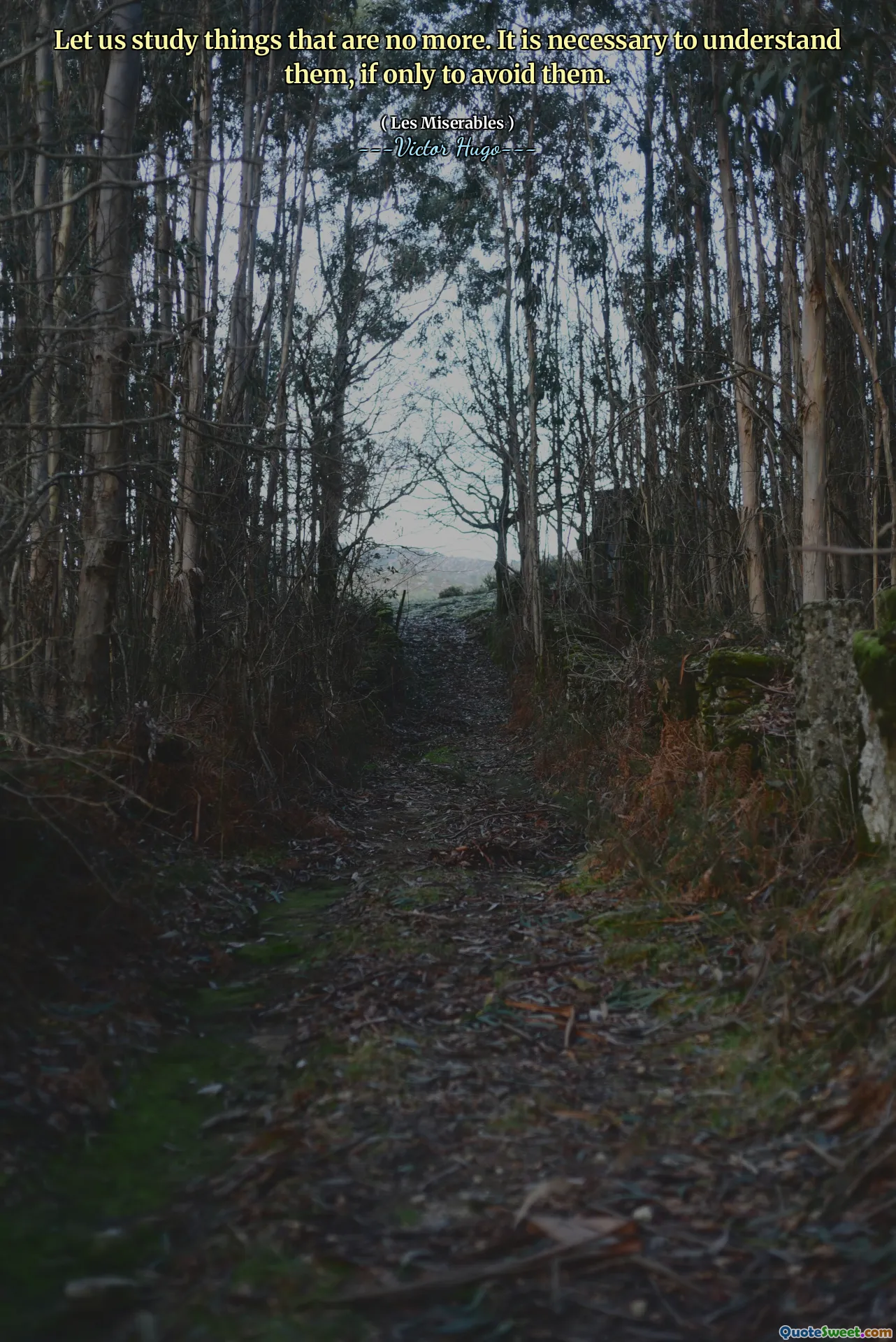
Let us study things that are no more. It is necessary to understand them, if only to avoid them.
This quote from Victor Hugo highlights a profound aspect of human awareness and learning. The idea of studying things that no longer exist or have faded into history may initially seem counterintuitive; after all, why invest time in the obsolete? However, Hugo suggests that understanding the past, especially its mistakes and failures, is essential for making informed decisions and preventing further missteps. History often repeats itself when lessons remain unlearned. By analyzing what has gone wrong before, we gain insights into human nature, societal flaws, and systemic weaknesses. This knowledge acts as a shield, preventing us from falling into similar traps or repeating destructive patterns. For example, understanding the causes and consequences of past wars can inform more diplomatic and peaceful approaches in current times. Similarly, studying failed policies or societal upheavals equips us with the wisdom to craft better futures. There's also a philosophical aspect: it encourages humility and acknowledgment of human fallibility. Recognizing that we are not invulnerable reminds us to remain cautious and open to learning. In a broader sense, this quote champions the importance of history, literature, and archaeology in shaping a wise society. We cannot change the past, but we can learn from it, and in doing so, forge a better path forward. As Victor Hugo’s work in 'Les Misérables' vividly illustrates, understanding human suffering and societal injustice is crucial in the ongoing journey toward compassion and justice.






